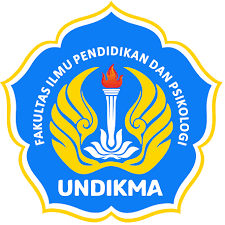IMPLEMENTASI CORPORATE SOCIAL RESPONSIBILITY (CSR) DAN DAMPAKNYA DALAM EKONOMI, SOSIAL, LINGKUNGAN MASYARAKAT SETELAH PANDEMI COVID-19 PADA PT ANGKASA PURA I BANDAR UDARA INTERNASIONAL I GUSTI NGURAH RAI BALI
Abstract
Abstrak: Penelitian ini bertujuan untuk mengetahui implementasi Corporate Social Responsibility (CSR) pada PT Angkasa Pura I Bandar Udara Internasional I Gusti Ngurah Rai Bali beserta dampaknya dalam ekonomi, sosial, dan lingkungan pada masyarakat setelah pandemi Covid-19. Teknik analisis data dengan pengumpulan data, kondensasi data, penyajian data, dan penarikan kesimpulan. Metode analisis menggunakan deskriptif kualitatif. Hasil dari penelitian ini yaitu implementasi CSR setelah pandemi Covid-19 masih sama dalam proses perencanaan dan perbedaan terjadi pada jumlah serta sasaran bantuan. Dampak program menggunakan Theory of Change (ToC) dengan menggunakan input (uang, tenaga, waktu), kemudian outcome yang berupa dampak ekonomi, sosial, dan lingkungan, serta impact yang dirasakan masyarakat yaitu dampak ekonomi meningkatnya pendapatan, dampak sosial meningkatnya fasilitas pendidikan sekolah, dan dampak lingkungan belum dirasakan sepenuhnya dari hasil bantuan yang telah disetujui bersama. Agar menerima dampak positif dari masyarakat untuk jangka panjang perlu adanya pengelolaan dampak program dan transparansi data penyaluran disetiap tahun penyaluran.
This study aimed to determine the implementation of Corporate Social Responsibility (CSR) at PT Angkasa Pura I I Gusti Ngurah Rai International Airport Bali and its economic, social and environmental impacts on society after the Covid-19 pandemic. Data analysis techniques include data collection, condensation, presentation, and conclusion. The analytical method uses descriptive qualitative. The results of this study show that the implementation of CSR after the Covid-19 pandemic is still the same in the planning process, and differences occur in the amount and target of assistance. The impact of the program uses the Theory of Change (ToC) using inputs (money, labor, time), then outcomes in the form of economic, social and environmental impacts, as well as impacts felt by the community, namely the economic impact of increasing income, the social impact of increasing school education facilities, and the environmental impact that has not been fully felt from the results of the assistance that has been mutually agreed upon. To receive a positive impact from the community in the long term, it is necessary to have program impact management and transparency of distribution data every year of distribution









